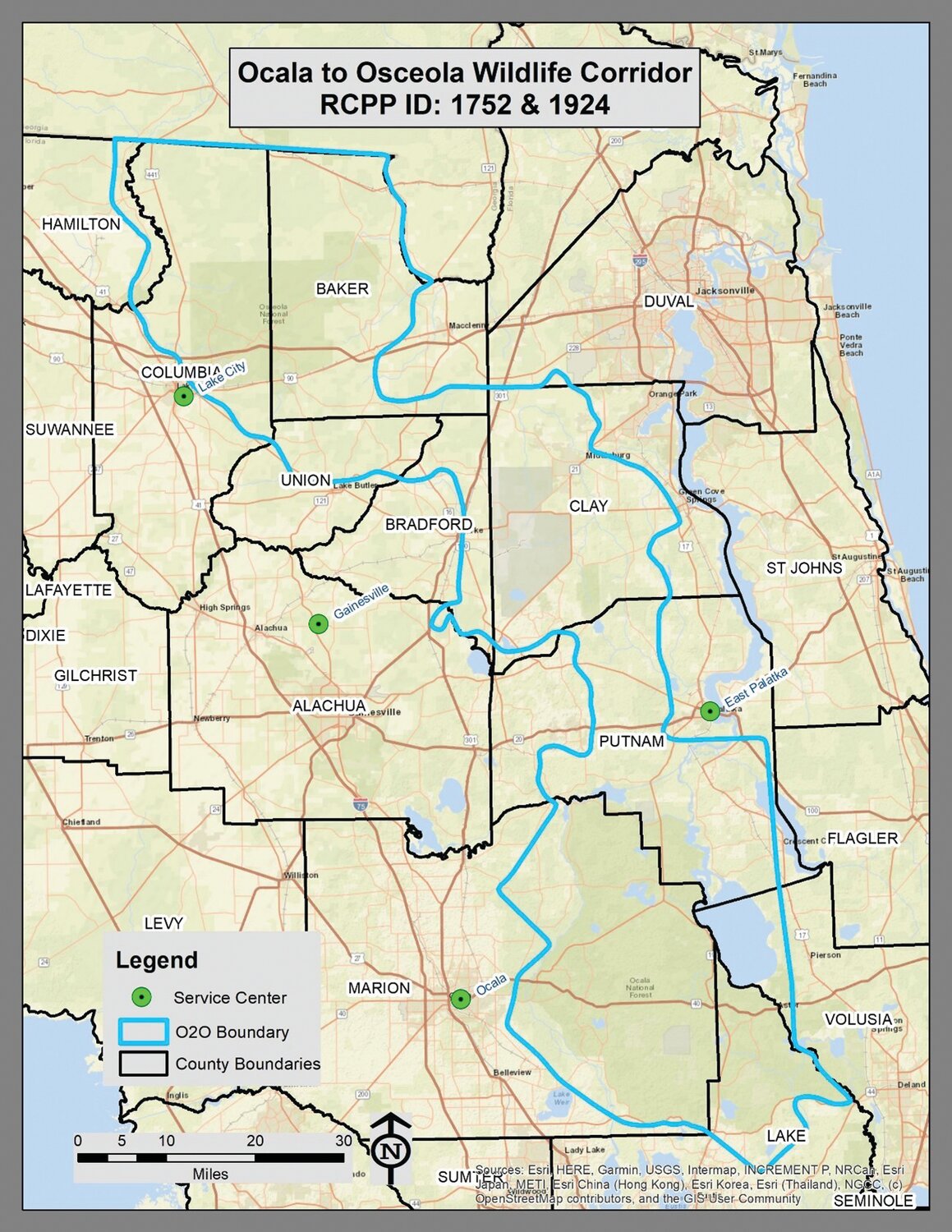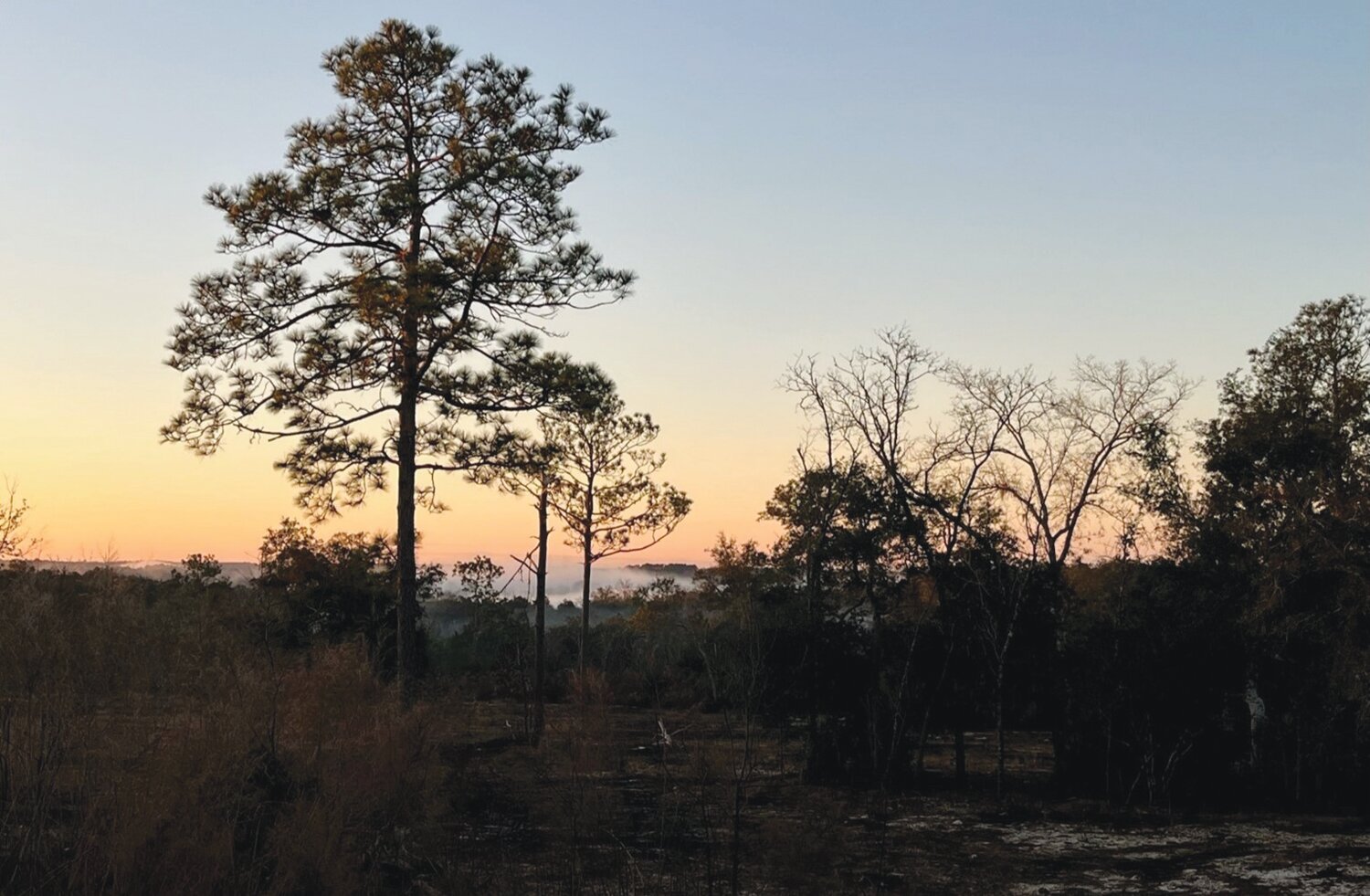Landowners can apply for matching conservation, land management funds
North Florida Land Trust encouraging land preservation through O2O corridor
CLAY COUNTY - Florida landowners interested in aligning their land uses with conservation values and practices have an opportunity to apply for US-Held or Entity Held Conservation Easements …
This item is available in full to subscribers.
Attention subscribers
To continue reading, you will need to either log in to your subscriber account, or purchase a new subscription.
If you are a current print subscriber, you can set up a free website account and connect your subscription to it by clicking here.
If you are a digital subscriber with an active, online-only subscription then you already have an account here. Just reset your password if you've not yet logged in to your account on this new site.
Otherwise, click here to view your options for subscribing.
Please log in to continueDon't have an ID?Print subscribersIf you're a print subscriber, but do not yet have an online account, click here to create one. Non-subscribersClick here to see your options for subscribing. Single day passYou also have the option of purchasing 24 hours of access, for $1.00. Click here to purchase a single day pass. |
Landowners can apply for matching conservation, land management funds
North Florida Land Trust encouraging land preservation through O2O corridor
CLAY COUNTY - Florida landowners interested in aligning their land uses with conservation values and practices have an opportunity to apply for US-Held or Entity Held Conservation Easements and/or Land Management opportunities in partnership with the U.S. Department of Agriculture (USDA), Natural Resources Conservation Service (NRCS) and the North Florida Land Trust (NFLT) in Florida beginning January 17. Landowners who applied for the recent Florida Department of Consumer Services (FDACS) Rural and Family Lands Protection Program (RFLPP) cycle are encouraged to apply for potential match opportunities. Those who are within and/or touching the boundary are eligible.
Applications for the fiscal year 2024 through the NRCS Regional Conservation Partnership Program (RCPP) will be accepted and evaluated by NRCS and NFLT through Feb. 20. FDACS will be involved in potential match negotiations. NFLT and NRCS accept conservation easement and land management applications year-round; however, applications received after Feb. 20, will be considered for the following sign-up period, as funding allows.
The RCPP is a partner-driven approach to conservation that funds solutions to natural resource challenges on agricultural land. The RCPP promotes coordination of NRCS conservation activities with partners that offer value-added contributions to expand their collective ability to address on-farm, watershed, and regional natural resource concerns.
The state’s RFLPP enthusiastically partners with NFLT and others when federal funds, such as RCPP, are involved. Those funding partnerships help move projects into a priority work plan for the FDACS, which means the conservation easements can be acquired more quickly.
NFLT is leading this RCPP project to protect the Ocala to Osceola Wildlife Corridor (O2O) in partnership with approximately 26 federal, state and private organizations. The O2O is a 100-mile long, 1.6-million-acre landscape of public and private lands that connects the Ocala National Forest to the Osceola National Forest, including a swath of land at and around Camp Blanding.
The O2O includes priority lands for the Florida Ecological Greenways Network (FEGN) and is a critical linkage in the Florida Wildlife Corridor. By protecting the natural beauty and sustainability of the landscape and connector lands, the O2O will continue to provide habitat for the Florida black bear and imperiled species like the red-cockaded woodpecker, indigo snake, and gopher tortoise. In addition, there are opportunities for protecting iconic Florida ecosystems, including legacy longleaf pine forests, sandhills and scrub in the O2O.
As part of this initiative, NRCS and its partners have funding through the RCPP to pay landowners for conservation easements and practices placed upon their land. NRCS and NFLT will be responsible for screening for land eligibility, coordinating appropriately to determine the proper entity holder, coordinating with landowners to develop conservation project applications, negotiating conservation easement terms, and/or developing a land management plan. Due to the complex nature of these projects, landowners interested in these funding opportunities are strongly encouraged to reach out for guidance on the options available before applying. Applicants must take the appropriate steps necessary to establish farm records and certifications. See below for Application Requirements:
• Farm records established/updated with the Farm Service Agency (FSA) for the applicant and the land.
• Be in compliance with highly erodible land and wetland conservation requirements.
• Meet the adjusted gross income (AGI) and payment limitation provisions (If applicable).
• Applicable documentation required for signature authority.
• Have control of land, where “control” means possession of the land by ownership, lease, or other agreement.
• Written concurrence from the landowner to apply a structural or vegetative conservation practice.
• Be compliant with provisions for protecting the interests of tenants and sharecroppers.
Conservation easements and practices funded through the RCPP program may maintain agricultural uses, promote longleaf pine range, native forest and grassland restoration, weather resiliency, carbon sequestration practices, and wildfire adaptability. This program will also contribute to protecting habitats and migration routes of native, threatened, endangered, and imperiled species. To protect water quality and quantity, this program will protect watersheds and springsheds (i.e., surface and ground waters). Land eligible for conservation easements and/or land management practices within the O2O will be evaluated based on criteria that include connectivity and accessibility to pre-existing conservation tracts, existing working land uses, presence of wetlands and watersheds, and natural habitats that house imperiled species (whether in a present or restorative state). Non-industrial, private forest land may also be enrolled when associated with active agricultural and/or conservation land. NRCS and NFLT encourage landowners and farmers who are historically underserved (HU) to apply. HU farmers are defined as farmers who are beginners, socially disadvantaged, or veterans, and/or who have limited resources.
Participating in the RCPP and RFLPP Grant programs helps secure the future of the nation’s food supply, prevents land with high conservation value from being developed or converted to non-agricultural use, and provides public benefits, including environmental quality, historic preservation, wildlife habitat, and protection of open space.
If you are a landowner interested in conserving your land in partnership with NFLT, the O2O Partnership, and NRCS, contact Heather Barnes, NFLT O2O Coordinator, at hbarnes@nflt.org or (904) 909-1155 or Michael Ruiz, NRCS RCPP-Easements, at michael.ruiz@usda.gov or (352) 338-9566.











